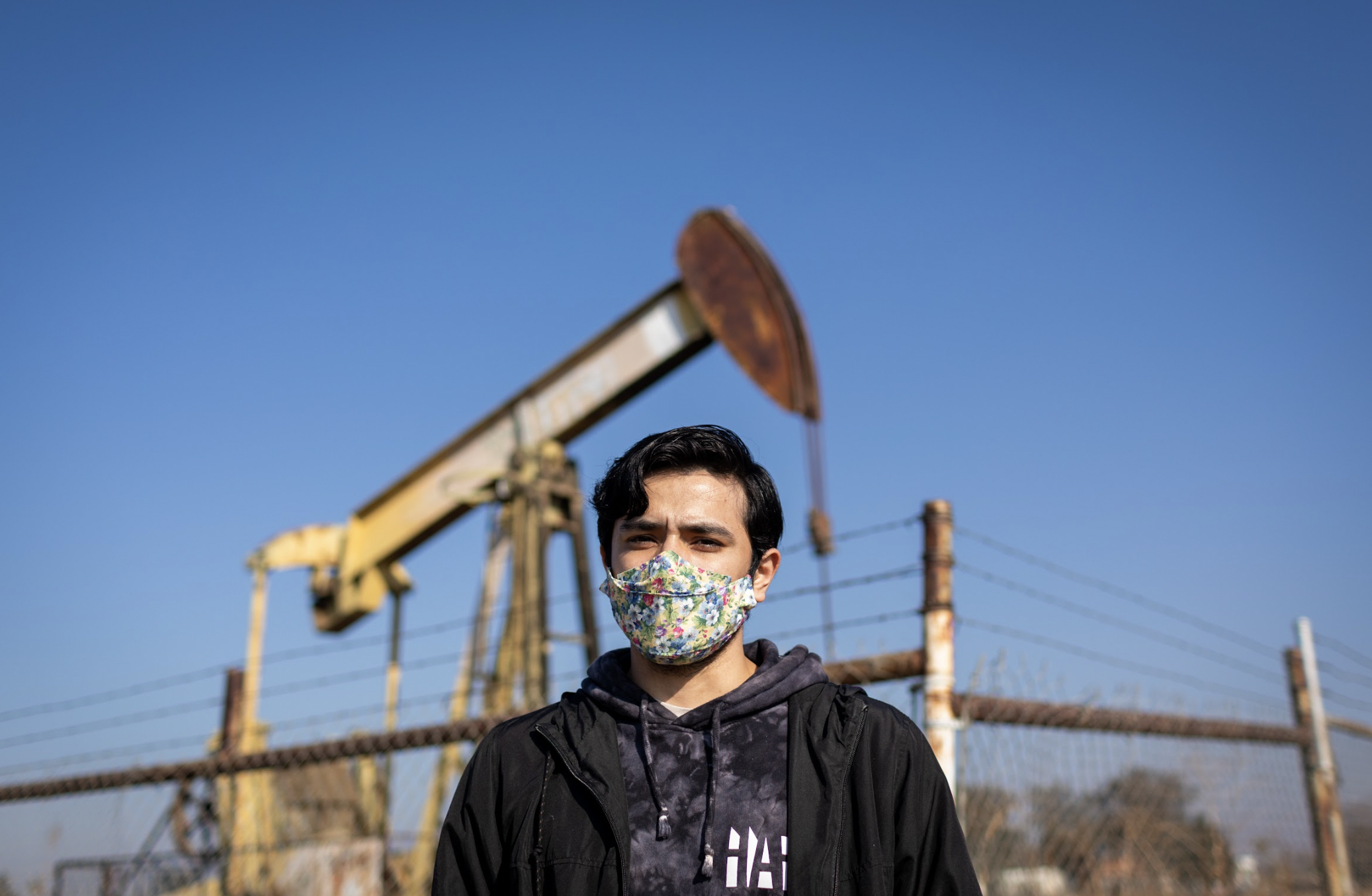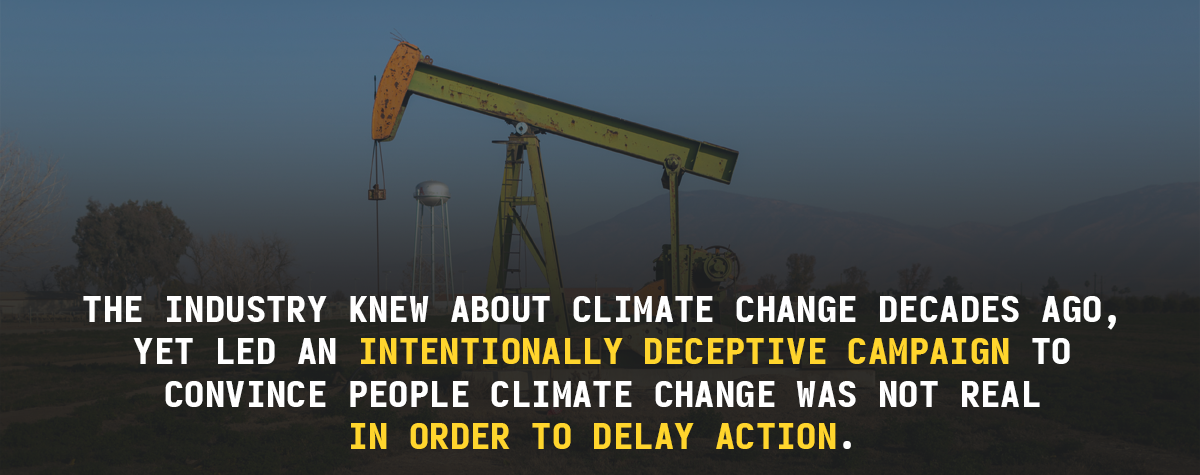Protect Health and Safety Setbacks in California
Protect Health and Safety Setbacks in California
After over a decade of advocacy by frontline communities and broad scientific consensus on the need for action, California finally created setbacks of 3,200 feet around homes, schools, hospitals and other sensitive receptors. Under the law, called for by Governor Newsom and authored by Senators Gonzalez and Limón, oil and gas extractors cannot receive new permits to drill within setbacks, and over time, neighborhood drilling will be phased out, starting in January 2023.
Setbacks are needed for public health. The state oil and gas regulator, CalGEM, asked an independent panel of public health experts for advice on neighborhood drilling. The panel found the best option for public health was phasing out all oil and gas extraction in the state, followed by a combination of setbacks and improved engineering controls everywhere else. The panel backed up this advice with an extensive scientific record, finding that proximity to oil and gas extraction is correlated with increased rates of cancer, cardiovascular disease, headaches, nosebleeds, and many other conditions. Further, the panel found definitively that neighborhood drilling causes poor birth outcomes and poor respiratory outcomes, such as asthma.
Setbacks are also necessary for environmental justice. Oil and gas companies have targeted low-income communities of color for oil and gas extraction for over a century, and people of color and low-income people still live near oil and gas extraction at significantly higher rates. The state delayed too long in protecting our communities, but at last, our elected leaders got it right by passing this law.
Upon the bill’s passage, the oil and gas industry took two actions.
First, the five companies that produce 97% of California’s gasoline jacked up prices by over a dollar despite crude prices going down over the same interval and no apparent market reason for the increase. While investigators are still inquiring about illegal price gouging and anti-competitive practices, this increase was blatant revenge against the Governor and the legislature for passing this common-sense, science-backed, popular legislation. Such revenge plays politics not just with consumers’ pocketbooks but with the lives of the same frontline community members that the industry has been sacrificing for over a century.
Industry profits skyrocketed to record levels as consumers struggled to afford the drastic price increases, and as a result the Governor called a special session of the legislature to pass a windfall tax. Oil and gas companies should not be allowed to profit from revenge on frontline communities and responsible elected representatives of the people for protecting the communities from the harms of neighborhood drilling. Learn more about the windfall profits tax here.
Second, the industry filed a referendum against the new law. Under California law, if opponents of a properly passed law can collect about 623,000 signatures, then they can pause the law’s implementation until the next general election, in this case in November 2024. Then, voters decide whether to keep the law or repeal it. That means that the oil industry is trying to delay implementation of the setbacks bill by two full years. They could even block it forever if they manage to win at the ballot box, although that is less likely as long as we stand strong in support of this popular law.
Paid signature gatherers have been seen and recorded lying to collect signatures. The industry is paying about $17 per signature, drawing in professional canvassers from across the country and corrupting our democracy.
This corruption is not new but rather fits into a pattern that the oil and gas industry has made its bread and butter to control our democracy and prevent us from moving toward a more sustainable economy.
Now, the industry seeks to funnel taxpayer money into climate dead ends like carbon capture and storage, rather than see people stop burning fossil fuels, as the scientific community continues to remind us will be necessary to limit the harms of climate change to a level that our society can survive. At the same time, the industry pours campaign donations and independent expenditures into our elections, having spent over $8 million dollars in California state elections in 2021. What’s more, the industry spent $77.5 million dollars on California state-level lobbying in the last four years.
Such extensive election and lobbying expenditures are not idly spent. Indeed, the industry bought valuable influence, just as it is now buying signatures. For example, while the setbacks bill, SB 1137 (Gonzalez), attained passing majorities in both houses of the legislature, only 25 of 40 Senators and 46 out of 80 Assemblymembers voted in favor of the bill. Not a single Republican voted for the bill, and of the Democrats, the following all voted against the bill or abstained (a functional “no”):
- Senator Hurtado
- Senator Glazer
- Senator Hueso
- Senator Newman
- Senator Roth
- Senator Rubio
- Senator Hertzberg (officially voted for the bill, but only after enough votes were secured to pass, and after voting setbacks down in committee in the two previous years)
- Assemblymember Cooley
- Assemblymember Cooper
- Assemblymember Gray
- Assemblymember O’Donnell
- Assemblymember Salas
- Assemblymember Alvarez
- Assemblymember Arambula
- Assemblymember Daly
- Assemblymember Grayson
- Assemblymember Irwin
- Assemblymember Low
- Assemblymember Maienschein
- Assemblymember Mayes
- Assemblymember Petrie-Norris
- Assemblymember Blanca Rubio
- Assemblymember Gipson (voted for the bill, but only after enough votes were secured to pass it and having whipped votes against it)
The tight vote highlights the brave leadership of champions like Senators Gonzalez, Limón, Stern, and Wiener, and Assemblymembers Muratsuchi, Kristina Garcia, Bryan, and Speaker Rendon, as well as those members pressed hard by Big Oil and its allies who still managed to turn out for the vote.

